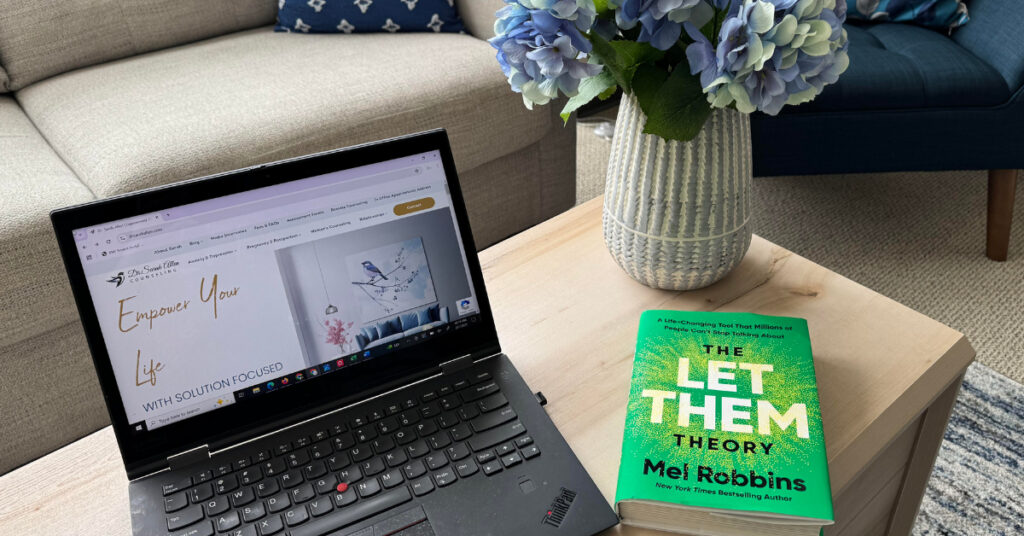
Journaling is a powerful tool for dealing with trauma. Writing down your thoughts and feelings can help you process complex emotions and gain clarity. It allows you to express yourself freely and without judgment. This can be especially helpful when working with a therapist specializing in trauma.
While speaking about your trauma during therapy is important, journaling serves as a complementary technique. It provides an outlet for your emotions between sessions. This ongoing process helps you track your progress and reflect on your experiences, making therapy more effective. The act of writing can also bring to light patterns in your thoughts and behaviors that you may not notice otherwise.
In my practice, I often recommend journaling as homework for clients dealing with trauma. This technique helps clients become more in tune with their emotions and thoughts. It makes them more active participants in their healing journey. Journaling can feel uneasy at first, but with time, it can become an essential part of your recovery process. It is more than just writing words on a page; it’s about giving yourself a voice and a safe space to heal.
Why Journaling Helps with Trauma
Journaling provides a safe space to express emotions related to trauma. Writing allows you to explore feelings that are often hard to put into words. This can be especially useful when those feelings are complicated or overwhelming. Getting feelings out on paper helps lessen their intensity. This makes it easier to discuss them in therapy.
Journaling can also foster a sense of control. Trauma often leaves you feeling powerless. Writing daily helps regain that control by putting you in charge of your narrative. You decide what to write and when to write it. This act of control can be empowering and help you feel more grounded.
Another benefit of journaling is that it serves as a record of your emotional journey. You can look back and see patterns or triggers that you may not have noticed before. This self-reflection makes it easier to understand your reactions and behaviors, aiding in your overall healing process. Journaling complements therapy by providing a consistent outlet for processing emotions, leading to a more comprehensive healing journey.
Steps for Effective Journaling
1. Set a Regular Time: Consistency is key in journaling. Choose a specific time each day to write. This can be in the morning when you wake up or before bed. Making it a habit ensures that you give yourself regular time to process your emotions.
2. Create a Safe Environment: Find a quiet, comfortable place where you can write without interruptions. This could be a cozy corner in your room or a quiet spot in a park. A peaceful environment helps you focus better on your thoughts and feelings.
3. Start with a Prompt: If you find it hard to begin, use prompts to get started. Some examples include “Today I feel…,” “I am grateful for…, ” or “My biggest challenge today was…”. These prompts help guide your writing and make it easier to start.
4. Write Freely: Don’t worry about grammar or spelling. The goal is to express yourself, not to write a masterpiece. Let your thoughts flow freely. Write whatever comes to mind. Over time, this will become easier and more natural.
5. Reflect and Review: After writing, take a few minutes to read over what you’ve written. This helps you understand your emotions better and identify patterns or triggers. Reviewing your entries can offer new insights and help in your recovery process.
By following these steps, journaling can become a powerful tool in your journey to heal from trauma.
Tips for Getting Started with Journaling
1. Keep It Simple: Start with short, simple entries if you’re new to journaling. Don’t pressure yourself to write long pages. Even a few sentences each day can be very helpful. The important thing is to make it a habit.
2. Be Honest: Write honestly about your thoughts and feelings. Your journal is a private space where you can be completely open. Honesty helps you process your emotions more effectively.
3. Use Prompts: If you feel stuck, use journaling prompts to get you started. Prompts like “What made me happy today?” or “What am I anxious about?” can help unlock your thoughts. They make journaling easier and more focused.
4. Don’t Judge Yourself: It’s natural to feel self-critical, but remember that your journal is for you. Don’t worry about grammar or spelling. Focus on expressing yourself and letting your thoughts flow naturally.
5. Make It Routine: Try to journal at the same time every day. This will help establish a routine and make journaling a regular part of your life. Whether it’s first thing in the morning or before bed, find a time that works best for you.
Maximizing Benefits by Combining Journaling with Therapy
Combining journaling with therapy can enhance the healing process. Journaling provides a place to explore thoughts and feelings that may arise during therapy sessions. Writing can help you organize these thoughts, making them easier to discuss during your next session.
Journaling also creates self-awareness. By writing down your emotions, you become more aware of your triggers and patterns. This allows for deeper discussions in therapy and more targeted strategies for healing. Keeping a journal between sessions ensures that you don’t forget important issues that arise.
Sharing your journal entries with your therapist can be beneficial. It provides valuable insights into your emotions and experiences. Your therapist can help you explore these in-depth, offering guidance and support. This collaborative approach deepens your understanding of yourself and accelerates your progress.
Lastly, journaling reinforces coping skills learned in therapy. Writing about these skills and how you apply them in daily life solidifies them. You can track your growth and celebrate your achievements, further boosting your confidence and resilience.
Conclusion
Journaling can be a powerful tool for healing from trauma. It offers a private space to express and process emotions, providing reflection and relief. Following the simple steps and tips discussed above can make journaling a straightforward and effective practice.
Combining journaling with therapy enhances the overall healing process. It creates self-awareness and deeper discussions as sharing your journal entries with your therapist can offer valuable insights and accelerate your journey to recovery.
If you are struggling with trauma and need more guidance, reach out to Dr. Sarah Allen as she can help you navigate trauma and the associated anxiety and depression that can often accompany it. She sees clients in person at her office in Northbrook, North Chicago, and virtually across IL, FL and the UK.

If you have any questions, or would like to set up an appointment to work with me and learn how to reduce anxiety, please contact me at 847 791-7722 or on the form below.
If you would like to read more about me and my areas of specialty, please visit Dr. Sarah Allen Bio.
Dr. Allen’s professional licenses only allows her to work with clients who live in IL, FL & the UK and unfortunately does not allow her to give personalized advice via email to people who are not her clients.
Dr. Allen sees clients in person in her Northbrook, IL office or remotely via video or phone.

What Can I Read That Helps Me While I Am Waiting For My First Appointment With Sarah?
Download this free booklet to gain valuable insights and practical strategies for managing anxiety and worrying.































